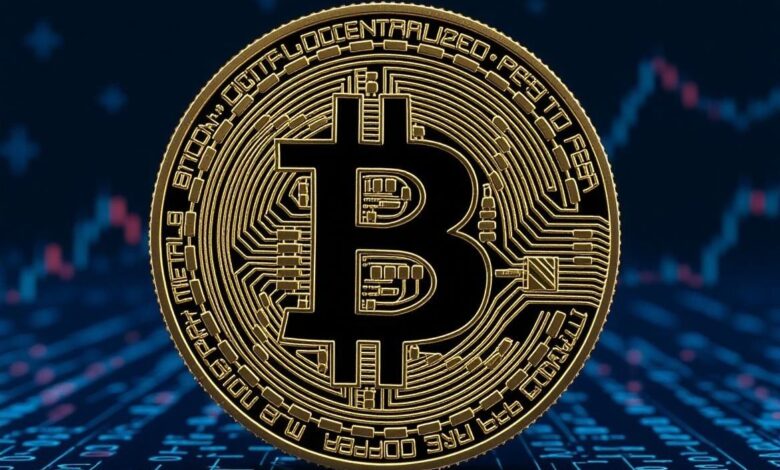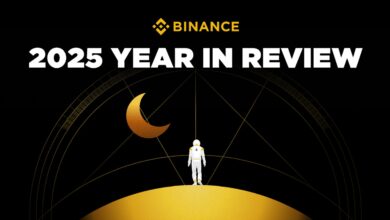Bitcoin at the Crossroads: Volatility Soars as U.S.-China Trade War Unfolds

The cryptocurrency market is facing one of its most turbulent periods in 2025 as geopolitical tensions escalate between the world’s two largest economies. President Donald Trump’s recent declaration of a trade war with China has not only rattled traditional financial markets but also sent ripples through the world of digital assets. Bitcoin, often called “digital gold,” finds itself at the intersection of politics, economics, and investor sentiment—an arena where uncertainty reigns supreme.
Trump Declares War: The Geopolitical Spark
President Trump’s announcement to impose sweeping tariffs on all Chinese imports has reignited fears of global supply chain disruptions. China, a critical supplier of technology components and rare earth minerals, is expected to respond with its own countermeasures. This escalation has created an atmosphere of heightened uncertainty in global markets.
For investors, the immediate question is clear: how will these tensions affect markets traditionally viewed as stable, and can Bitcoin act as a safe haven amid the chaos?
Bitcoin’s Rollercoaster Ride
The response in the crypto market was swift. Bitcoin, which had recently hovered around $111,000, experienced sharp fluctuations as traders weighed the potential impact of the trade war. At one point, prices dipped below $110,000, reflecting risk-off sentiment among investors.
Traders are particularly focused on Bitcoin’s critical support zone between $107,000 and $110,000. If these levels fail to hold, analysts warn that a deeper correction could be imminent, potentially mirroring the volatility seen in previous macroeconomic shocks.
Analysts Divided: Crash or Opportunity?
Market analysts are currently split over Bitcoin’s near-term trajectory. Some experts caution that if the support zone breaks, Bitcoin could experience a rapid sell-off. Escalating trade tensions, coupled with potential global economic slowdown, may intensify the downward pressure.
Others see opportunity amid the chaos. Strong ETF inflows, growing institutional interest, and the prospect of U.S. Federal Reserve rate cuts are cited as factors that could stabilize or even boost Bitcoin prices.
This divide underscores a fundamental reality in the cryptocurrency market: geopolitical events can act as both risk and catalyst, amplifying volatility in ways that traditional assets rarely experience.
The Safe Haven Debate: Bitcoin vs Traditional Markets
Bitcoin has long been positioned as a hedge against inflation and macroeconomic uncertainty. In times of crisis, investors often turn to gold—but Bitcoin’s decentralized, scarce nature has increasingly made it a digital alternative. The U.S.-China trade war has reignited discussions about whether cryptocurrencies can function as a true safe haven during geopolitical shocks.
Unlike gold, Bitcoin’s price reacts instantly to news and sentiment, making it a barometer for risk appetite. The current scenario demonstrates how deeply interconnected global politics and crypto markets have become.
What Traders Should Watch
As Bitcoin navigates this uncertain terrain, investors need to stay alert to several key factors. The support zone between $107,000 and $110,000 remains critical; a breach of this range could signal increased selling pressure and a deeper correction. Beyond price levels, global news will play a decisive role. Any escalation in the U.S.-China trade war, such as new tariffs or retaliatory measures, could trigger sudden volatility in the crypto market.
Institutional activity is another important factor to monitor. ETF inflows and growing corporate adoption of Bitcoin have been supporting the market, and continued momentum from these sources could help stabilize prices. At the same time, macroeconomic indicators—including Federal Reserve policy decisions, inflation reports, and traditional market performance—can heavily influence investor sentiment in the crypto space. Traders who keep a close eye on these interconnected variables will be better positioned to navigate the market’s next moves.
Bitcoin as a Barometer of Global Risk
The U.S.-China trade war has made one thing clear: Bitcoin is no longer just a speculative asset—it is a mirror of global uncertainty. Whether the market will see a sharp correction or a renewed rally remains to be seen, but one thing is certain: geopolitical shocks now have the power to move crypto prices almost as much as traditional markets.
For investors, traders, and enthusiasts, understanding Bitcoin’s role in this new paradigm is crucial. In an era where trade wars, tariffs, and macroeconomic surprises can shape markets overnight, Bitcoin stands as both a risk and an opportunity—a digital barometer for a turbulent world.




